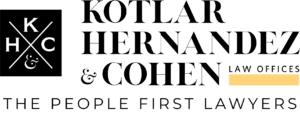For over a year now, people have been wearing face masks to adhere to health guidelines in an effort to minimize the spread of the Coronavirus (COVID-19). Some face coverings are medical grade, whereas others are simple cloth strips that cover a person’s nose and mouth. Many states and localities across the United States have struggled with whether to impose mask mandates on members of the public. Several businesses, from local stores to national chains, have required their use on site. Many companies have ordered their employees to wear this protective gear while on the job. Yet, nothing official has come out from the Occupational Safety and Health Administration (OSHA) establishing a position on whether these ubiquitous protective garments are to be considered official personal protective equipment (PPE) according to the agency’s usual standards for industrial PPE.
With the Centers for Disease Control and Prevention (CDC) recently making public statements that suggest that face coverings provide a measure of protection for the wearer as well as those nearby, the question has returned: Are face masks considered PPE?
Employees who have been exposed to COVID-19 at work are encouraged to contact an experienced Workers’ Compensation lawyer for assistance.
The CDC’s Position on Fabric Face Masks
Although OSHA is predominantly concerned with providing guidance to businesses, the CDC has put out recommendations for all citizens, in industrial, commercial, and social settings alike, to make it a habit to wear a face mask when in close proximity to others, especially if close contact is prolonged.
The CDC has presented a case that supports the use of masks as a preventative measure against the virus, claiming that their findings indicate that there are transmission-blocking benefits for both the mask-wearer and those in the vicinity. In a press release last month, the agency stated that some cloth face coverings may serve as source control while also providing the wearer with some personal protection.
The CDC stopped short of recommending face masks in all circumstances, as their use is impractical or even dangerous in some situations, such as for individuals with severe breathing issues.
OSHA and the Use of Cloth Face Coverings as PPE
Although acknowledging the CDC’s position that fabric masks serve some useful purpose, OSHA has not fully backed the widely recommended virus precaution as a definitively approved item of PPE.
It is the workplace safety agency’s position that the information available on the effectiveness of face coverings is inconclusive as it relates to many workplace applications. OSHA is withholding a complete endorsement of face coverings as a form of PPE under its stringent standards, which aim to conclude whether certain workplace protections are practical and effective in the specific work setting and according to its intended usage.
OSHA is calling for more research on the effectiveness of face masks in general, and more specifically their use in combination with other forms of workplace PPE. A major concern is that in order to fully protect the wearer from harm in many industrial settings, face masks must work well with blocking and filtering material already used for some industrial purposes.
The official take is that OSHA supports the use of facial coverings as a preventative measure against the spread of COVID-19 for workers who come into close contact with others, as long as wearing a face mask is appropriate for the work environment.
Rationale for OHSA’s Standards
OSHA’s goal is not to endorse the use of specific products or to back the broad implementation of particular protective equipment. The role of the agency is to provide guidance on what is appropriate under specific work conditions to provide maximum worker protections.
When it comes to quality standards for actual equipment, OSHA points to the research and qualification measures presented by the American National Standards Institute (ANSI). The institute works apart from OSHA to provide quality assessments on products based on established safety and health requirements.
In other words, OSHA makes recommendations on types of PPE and their use in certain situations, but this advice goes hand-in-hand with safety items qualification under ANSI standards.
For example, if a business evaluation by an OSHA representative suggests the use of a certain type of protective eyewear, the business owner will be required to provide its employees with a brand or model of goggles that meet the ANSI standards for safety and effectiveness.
To be clear, compliance with OSHA standards involves more than just using ANSI-approved equipment. OSHA is more concerned with the implementation and suitability for usage in the individual work setting at hand. An OSHA worksite evaluation involves in-person observation of the conditions present in the workplace as well as the work procedures and practices used by the employee.
The compliance evaluation would conclude with recommendations specific to the job tasks and settings being considered, meaning that a broad-scale, all-inclusive mask recommendation for all industry applications is unlikely.
OSHA’s Stand on the Use of Cloth Masks in the Workplace
OSHA has indicated that it supports the use of masks in the workplace, as long as their use does not counteract the effectiveness of other protective devices or equipment.
A closer look into the agency’s guiding general duty clause specifies that employers have a responsibility to provide a work environment that is free from recognized hazards that are causing or are likely to cause death or serious physical harm.
This clause relates to the workplace concerns regarding the current COVID-19 situation in very real ways. Despite its resistance to categorizing masks as PPE, the agency has provided guidelines specific to the issue of coronavirus exposure risk mitigation for workers, outlining recommendations for industries such as airlines, corrections, health care workers, and in-home repair services.
Mount Laurel Workers’ Compensation Lawyers at Kotlar, Hernandez & Cohen, LLC Help Employees Injured at Work
If you contracted COVID-19 on the job, you should be able to collect benefits from your employer’s Workers’ Compensation program to pay for any medical attention or treatments. The Mount Laurel Workers’ Compensation lawyers at Kotlar, Hernandez & Cohen, LLC can help you navigate the system to prove that your injury is eligible for coverage under your employer’s Workers’ Compensation plan. We are ready to do what it takes to get you the benefits you deserve. Call us at 856-751-7676 or contact us online for a free consultation. Our offices are in Mount Laurel, Cherry Hill, Trenton, and Vineland, New Jersey; and Trevose, Pennsylvania. We serve clients throughout New Jersey and Pennsylvania.


